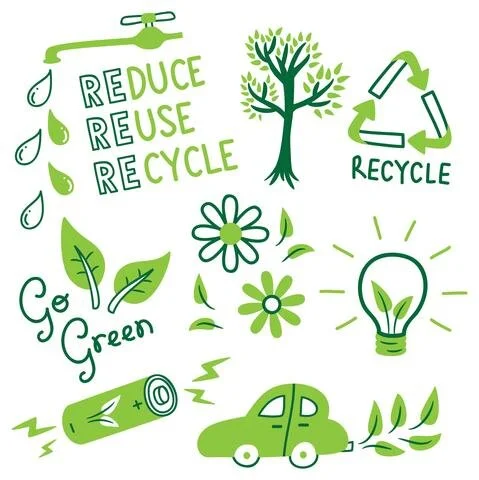Reduce and Reuse
The average Virgin Islander sends 9 lbs of trash per day to the landfill, this is about 40% higher than the US national average. Additionally local landfills on St. Thomas (Bovoni) and St. Croix (Anguilla) are scheduled to close by 2022 as they are near or at capacity. Pollution and marine debris also have negative effects on tourism and our beautiful ecosystems. That’s why it’s important practice the 3 R’s: reduce, reuse and recycle.
In terms of the waste hierarchy, the first and most important method is to reduce your intake of products so there is less to waste or recycling. Some ways to reduce can be to avoid using disposable plates, cups, napkins and cutlery, to avoid excess packaging if possible, and avoid buying unnecessary products.
When you do have to purchase a product try to reuse it multiple times before discarding it for recycling or to the landfill. Some examples of re-using are bringing your own silverware and containers for lunches on the go, instead of wrapping paper reusing old newspapers or scrap paper, bringing your own canvas bags to the grocery store, donating used clothes instead of throwing them away, reusing food waste as compost for gardening.
Recycling
The final step is recycling which involves re-manufacturing items into raw materials which can again be used in the production stage. From a life-cycle point of view, recycling significantly saves energy and reduces emissions as it eliminates the initial mining and early production steps needed for virgin materials.
Unfortunately while useful, recycling doesn’t solve everything. For optimal recycling it it vital that consumers sort their trash correctly which is often not the case. Incorrect recycling means sorters must slowly go through materials to pull out contaminated objects which can be expensive, it can also cause malfunctions in the machinery and other setbacks to the plant or result in an unusable final product. In fact, about a quarter of America’s recycling is contaminated. Some would even say that it’s better to not recycle at all than to recycle incorrectly.
In the past the United States sent most of its recycling to China and other developing countries. However at the end of 2017, China imposed an import ban on most recyclable materials and other countries are following suit. This has had serious repercussions for America’s recycling programs and has caused a drastic hike in prices, leading many to resort to sending the recyclable materials to the landfill.
CGTC is working on a Trash to Treasure guide to help Virgin Islanders find local initiatives to reduce, reuse and recycle materials on St. Thomas, St. John and St. Croix. Please click the button below for updates on this project!
Water Conservation
Another crucial resource to properly manage is freshwater. As climate change is predicted to decrease annual precipitation in the Caribbean by 10% by 2050, water scarcity will continue to become a more drastic and frequent issue. We need to the promote conservation of water resources. Some ways to use less water is to install more water efficient technologies such as ENERGY STAR dishwashers and laundry machines or low flow showers and faucets. Other conservation methods are to turn off faucets when not in use or take showers instead of baths. What strategies do you use at home to conserve water?
Ecosystem Services
The final resource we will discuss is often forgotten because it does not directly correlate to economic value. Ecosystem services are the value of services provided by our natural ecosystems such as coral reefs, mangroves, coastlines, rain forests, and other Caribbean ecosystems. We don’t have to pay for the services provided (clean air, clear waters, beautiful views, healthy wildlife and fisheries) even though they are essential to our well-being and tourism dependent economy.




